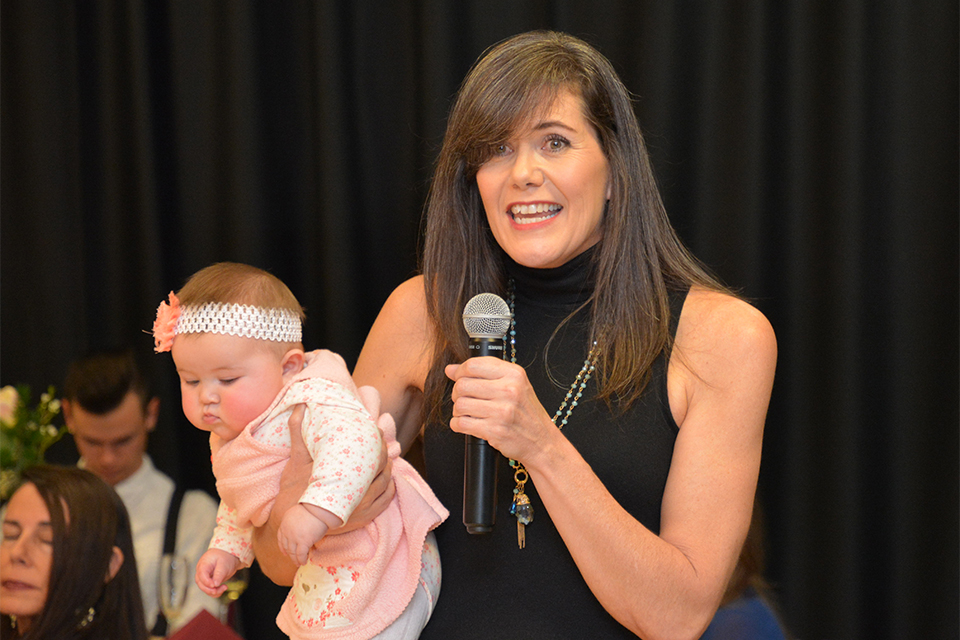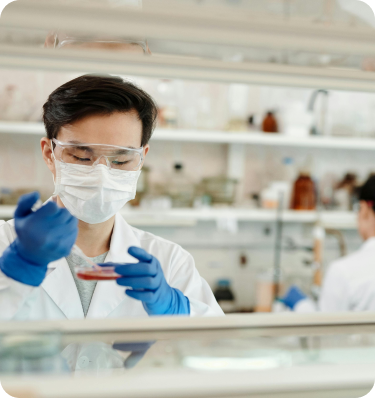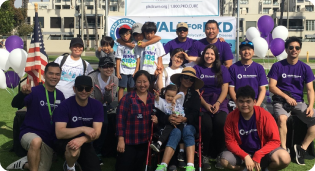
Nicole Cardin
[caption id="attachment_11524" align="alignright" width="300"] Nicole and her granddaughter[/caption]
My paternal grandmother, Helen, is the first that we know of who had autosomal dominant polycystic kidney disease (ADPKD) in the family. We only figured it out when others in the family started to get diagnosed and we realized that it must have been the cause of her kidney failure in her early 60’s. My dad and both of his brothers were diagnosed and all had transplants in their early 60’s. The kidney my dad’s identical twin brother, Bill, received did not work and had to be removed. He then spent many years on dialysis. He passed away this year and his precious smile and amazing sense of humor is missed every day.
I am 55 and was diagnosed just before turning 50. My primary care physician said that I did not need a nephrologist yet and that she would monitor my kidney function yearly. I decided that I wanted to be proactive and sought out a good nephrologist, and I am so glad that I did!
Nicole with team members at the 2018 Sacramento Walk for PKD
While it is true that there is little that can be done at this stage, I knew there were still important things I could do. I was determined to be a test case for the family and set out to do all that I could instead of just waiting around for my kidneys to fail. My nephrologist, Dr. Thornton, noticed that my blood pressure was slightly elevated, something that my primary care doctor had not thought important, and put me on a low dose of blood pressure meds. I now have a BP cuff at home and check it regularly. I am an avid exerciser and have found that keeping my weight in a good healthy range can be beneficial not only to my kidney function but also if/when I need a transplant. I also learned to always keep well hydrated and to limit my caffeine intake.
When Dr. Thornton realized I wanted to do more to prevent kidney function decline, he told me about the many clinical drug trials that are available. I attempted to sign up for the Tolvaptan study in San Francisco but was denied. In June I was accepted for a Metformin trial with the University of Denver. It is going well and whether I have the real drug or the placebo, it is still moving the study forward. Where there is progress, there is hope.
Nicole with fellow committee members at Corks for a Cure fundraiser
These studies are expensive to run, and as soon as I was introduced to the PKD Foundation I knew I wanted to help with their fundraising. I contacted the Sacramento Chapter and connected with some amazing people! We started an annual event called Corks for a Cure, an evening of fine California wines, silent auction and great fun. It has been such a blessing to be connected with these dedicated people and working for a common goal, to end PKD! Our fourth annual event will be March 2, 2019.
We don’t yet know if my three children or nine grandchildren have PKD, but I desperately want to be part of the solution for them! Will you join me?
Nicole and her granddaughter[/caption]
My paternal grandmother, Helen, is the first that we know of who had autosomal dominant polycystic kidney disease (ADPKD) in the family. We only figured it out when others in the family started to get diagnosed and we realized that it must have been the cause of her kidney failure in her early 60’s. My dad and both of his brothers were diagnosed and all had transplants in their early 60’s. The kidney my dad’s identical twin brother, Bill, received did not work and had to be removed. He then spent many years on dialysis. He passed away this year and his precious smile and amazing sense of humor is missed every day.
I am 55 and was diagnosed just before turning 50. My primary care physician said that I did not need a nephrologist yet and that she would monitor my kidney function yearly. I decided that I wanted to be proactive and sought out a good nephrologist, and I am so glad that I did!
Nicole with team members at the 2018 Sacramento Walk for PKD
While it is true that there is little that can be done at this stage, I knew there were still important things I could do. I was determined to be a test case for the family and set out to do all that I could instead of just waiting around for my kidneys to fail. My nephrologist, Dr. Thornton, noticed that my blood pressure was slightly elevated, something that my primary care doctor had not thought important, and put me on a low dose of blood pressure meds. I now have a BP cuff at home and check it regularly. I am an avid exerciser and have found that keeping my weight in a good healthy range can be beneficial not only to my kidney function but also if/when I need a transplant. I also learned to always keep well hydrated and to limit my caffeine intake.
When Dr. Thornton realized I wanted to do more to prevent kidney function decline, he told me about the many clinical drug trials that are available. I attempted to sign up for the Tolvaptan study in San Francisco but was denied. In June I was accepted for a Metformin trial with the University of Denver. It is going well and whether I have the real drug or the placebo, it is still moving the study forward. Where there is progress, there is hope.
Nicole with fellow committee members at Corks for a Cure fundraiser
These studies are expensive to run, and as soon as I was introduced to the PKD Foundation I knew I wanted to help with their fundraising. I contacted the Sacramento Chapter and connected with some amazing people! We started an annual event called Corks for a Cure, an evening of fine California wines, silent auction and great fun. It has been such a blessing to be connected with these dedicated people and working for a common goal, to end PKD! Our fourth annual event will be March 2, 2019.
We don’t yet know if my three children or nine grandchildren have PKD, but I desperately want to be part of the solution for them! Will you join me?




